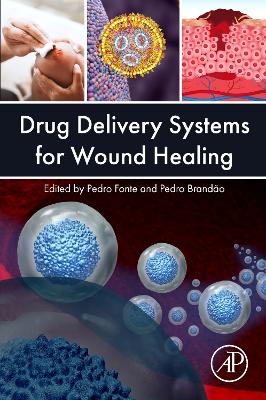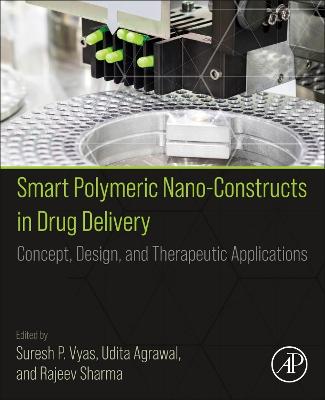How Synthetic Drugs Work
 -10%
portes grátis
-10%
portes grátis
How Synthetic Drugs Work
Insights into Molecular Pharmacology of Classic and New Pharmaceuticals
Al-Abbasi, Fahad A.; Karmakar, Sanmoy; Kazmi, Imran; Afzal, Muhammad; Shaharyar, Md Adil
Elsevier Science & Technology
09/2022
600
Mole
Inglês
9780323998550
15 a 20 dias
930
Descrição não disponível.
1. Introduction to Molecular Pharmacology: Basic Concept
2. Mechanism of Action of Drugs acting on the cholinergic system
3. Mechanism of Action of Adrenergic drugs
4. Mechanism of Action of anti-inflammatory drugs and Corticosteroids
5. Mechanism of Action of Anti-Diabetic drugs
6. Mechanism of action of Estrogens, Progestins and Androgens
7. Mechanism of Action of sedatives, Hypnotics and Anti-Anxiety Drugs
8. Mechanism of Action of Anti-Epileptics
9. Mechanism of Action of Anti-Parkinson
10. Mechanism of Action of Anti-Psychotics and Anti-Maniacs
11. Mechanism of Action of Anti-Depressants
12. Mechanism of Action of Drugs for Heart Failure
13. Mechanism of Action of Anti-Arrhythmia
14. Mechanism of Action of Anti-Anginal and Vasodilating agents
15. Mechanism of Action of Anti-Hypertensive Drugs
16. Mechanism of Action of Diuretic and Anti-diuretic Drugs
17. Mechanism of Action of Gastrointestinal drugs
18. Mechanism of Action of Anti-Bacterial drugs
19. Mechanism of Action of Anti-fungal agent
20. Mechanism of Action of Anti-Viral agents
21. Mechanism of Action of Anti-Cancer agents
22. Mechanism of Action of immunomodulators
23. Mechanism of Action of Opioids and other pain relievers
24. Application of Molecular Pharmacology in Research Techniques and Drug Development
2. Mechanism of Action of Drugs acting on the cholinergic system
3. Mechanism of Action of Adrenergic drugs
4. Mechanism of Action of anti-inflammatory drugs and Corticosteroids
5. Mechanism of Action of Anti-Diabetic drugs
6. Mechanism of action of Estrogens, Progestins and Androgens
7. Mechanism of Action of sedatives, Hypnotics and Anti-Anxiety Drugs
8. Mechanism of Action of Anti-Epileptics
9. Mechanism of Action of Anti-Parkinson
10. Mechanism of Action of Anti-Psychotics and Anti-Maniacs
11. Mechanism of Action of Anti-Depressants
12. Mechanism of Action of Drugs for Heart Failure
13. Mechanism of Action of Anti-Arrhythmia
14. Mechanism of Action of Anti-Anginal and Vasodilating agents
15. Mechanism of Action of Anti-Hypertensive Drugs
16. Mechanism of Action of Diuretic and Anti-diuretic Drugs
17. Mechanism of Action of Gastrointestinal drugs
18. Mechanism of Action of Anti-Bacterial drugs
19. Mechanism of Action of Anti-fungal agent
20. Mechanism of Action of Anti-Viral agents
21. Mechanism of Action of Anti-Cancer agents
22. Mechanism of Action of immunomodulators
23. Mechanism of Action of Opioids and other pain relievers
24. Application of Molecular Pharmacology in Research Techniques and Drug Development
Este título pertence ao(s) assunto(s) indicados(s). Para ver outros títulos clique no assunto desejado.
?5-fluorocytosine; Adrenergic drugs; Agonist; Alpha receptor; Analgesics; Antidiarrheals; Antiemetics; Antifungal; Arrhythmia; Autonomic nervous system; Azole; Beta receptor; Candidiasis; Cholinergic; Corticosteroids; Cryptococcal meningitis; Cyclooxygenase; Depolarization; Depression; Diabetes mellitus; Drug development; Drug discovery; Drug target; Electrophysiology; Emetics; G-protein-coupled receptors; Gamma receptor; Heart failure; Inflammation; Inflammatory mediators; Insulin resistance; Mechanism of action; Mechanism of antiulcer drugs; Metformin; Molecular mechanisms; Molecular pharmacology; Monoamine oxidase; Muscarinic; NSAID; Network pathways; Neurotransmitter; Opioids; Pain; Parasympathetic drugs; Pathophysiology; Pharmacodynamics; Pharmacokinetics; Pharmacological treatment; Pharmacology; Pharmacology of anticonstipating agents; Polyene; Pulmonary aspergillosis; Receptors; SNRIs; SSRIs; Signaling; Sulfonylureas; Sympathetic drugs; Syncope; TCAs; Torsades de pointes; X
1. Introduction to Molecular Pharmacology: Basic Concept
2. Mechanism of Action of Drugs acting on the cholinergic system
3. Mechanism of Action of Adrenergic drugs
4. Mechanism of Action of anti-inflammatory drugs and Corticosteroids
5. Mechanism of Action of Anti-Diabetic drugs
6. Mechanism of action of Estrogens, Progestins and Androgens
7. Mechanism of Action of sedatives, Hypnotics and Anti-Anxiety Drugs
8. Mechanism of Action of Anti-Epileptics
9. Mechanism of Action of Anti-Parkinson
10. Mechanism of Action of Anti-Psychotics and Anti-Maniacs
11. Mechanism of Action of Anti-Depressants
12. Mechanism of Action of Drugs for Heart Failure
13. Mechanism of Action of Anti-Arrhythmia
14. Mechanism of Action of Anti-Anginal and Vasodilating agents
15. Mechanism of Action of Anti-Hypertensive Drugs
16. Mechanism of Action of Diuretic and Anti-diuretic Drugs
17. Mechanism of Action of Gastrointestinal drugs
18. Mechanism of Action of Anti-Bacterial drugs
19. Mechanism of Action of Anti-fungal agent
20. Mechanism of Action of Anti-Viral agents
21. Mechanism of Action of Anti-Cancer agents
22. Mechanism of Action of immunomodulators
23. Mechanism of Action of Opioids and other pain relievers
24. Application of Molecular Pharmacology in Research Techniques and Drug Development
2. Mechanism of Action of Drugs acting on the cholinergic system
3. Mechanism of Action of Adrenergic drugs
4. Mechanism of Action of anti-inflammatory drugs and Corticosteroids
5. Mechanism of Action of Anti-Diabetic drugs
6. Mechanism of action of Estrogens, Progestins and Androgens
7. Mechanism of Action of sedatives, Hypnotics and Anti-Anxiety Drugs
8. Mechanism of Action of Anti-Epileptics
9. Mechanism of Action of Anti-Parkinson
10. Mechanism of Action of Anti-Psychotics and Anti-Maniacs
11. Mechanism of Action of Anti-Depressants
12. Mechanism of Action of Drugs for Heart Failure
13. Mechanism of Action of Anti-Arrhythmia
14. Mechanism of Action of Anti-Anginal and Vasodilating agents
15. Mechanism of Action of Anti-Hypertensive Drugs
16. Mechanism of Action of Diuretic and Anti-diuretic Drugs
17. Mechanism of Action of Gastrointestinal drugs
18. Mechanism of Action of Anti-Bacterial drugs
19. Mechanism of Action of Anti-fungal agent
20. Mechanism of Action of Anti-Viral agents
21. Mechanism of Action of Anti-Cancer agents
22. Mechanism of Action of immunomodulators
23. Mechanism of Action of Opioids and other pain relievers
24. Application of Molecular Pharmacology in Research Techniques and Drug Development
Este título pertence ao(s) assunto(s) indicados(s). Para ver outros títulos clique no assunto desejado.
?5-fluorocytosine; Adrenergic drugs; Agonist; Alpha receptor; Analgesics; Antidiarrheals; Antiemetics; Antifungal; Arrhythmia; Autonomic nervous system; Azole; Beta receptor; Candidiasis; Cholinergic; Corticosteroids; Cryptococcal meningitis; Cyclooxygenase; Depolarization; Depression; Diabetes mellitus; Drug development; Drug discovery; Drug target; Electrophysiology; Emetics; G-protein-coupled receptors; Gamma receptor; Heart failure; Inflammation; Inflammatory mediators; Insulin resistance; Mechanism of action; Mechanism of antiulcer drugs; Metformin; Molecular mechanisms; Molecular pharmacology; Monoamine oxidase; Muscarinic; NSAID; Network pathways; Neurotransmitter; Opioids; Pain; Parasympathetic drugs; Pathophysiology; Pharmacodynamics; Pharmacokinetics; Pharmacological treatment; Pharmacology; Pharmacology of anticonstipating agents; Polyene; Pulmonary aspergillosis; Receptors; SNRIs; SSRIs; Signaling; Sulfonylureas; Sympathetic drugs; Syncope; TCAs; Torsades de pointes; X







